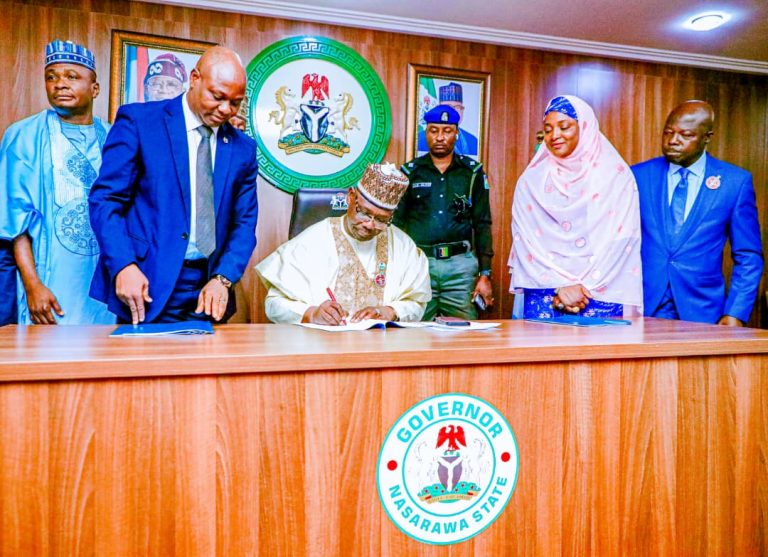
Nigeria’s banking landscape is bracing for a seismic shake-up as the country hurtles towards a digital future that could redefine how its 200 million citizens shop, trade, and bank.
The Lagos Business School (LBS) projected that Nigeria’s online marketplace could vault beyond $16 billion by 2030, fuelled by a tech-savvy youth population, surging smartphone penetration, and a surge of daring start-ups that are rewriting the rules of business.
Speaking at the 35th annual conference of Finance Correspondents Association of Nigeria (FICAN) in Lagos, LBS Dean, Professor OlayinkaDavid-West, represented by Professor Akintola Owolabi, said Nigeria stood “on the brink of a digital revolution capable of reshaping commerce, livelihoods and service delivery”.
David-West warned that what was unfolding was more than a technological shift, saying, “It is a fundamental realignment of how Nigerians live, work, and prosper.”
Across the country, home-grown innovators are making online retail part of everyday life. Platforms, like Jumia and Konga, are luring millions of consumers into virtual storefronts once thought out of reach.
Meanwhile, app-driven banks and fintechs are chipping away at the dominance of traditional lenders, offering instant payments, microloans, and savings tools without the overhead of marble halls and paper slips.
David-West compared the present moment to the demise of postal banking in the early 20th century, cautioning that banks unwilling to retool for a mobile-first world risk obsolescence.
“Digital banks must work hard to build trust capital,” she said.
According to her, “Once they achieve that, they could rival the asset base of today’s major banks.”
Some forward-thinking lenders are already blending branch networks with agile digital models, while others may have to pursue mergers with fintechs to stay competitive.
“This is an offshoot of the Fourth Industrial Revolution,” she stated, adding, “You either follow or you’re left behind.”
The revolution is spilling far beyond shopping carts and banking apps. New-age logistics companies, from Kwik to GIG Logistics, are reshaping supply chains, ensuring goods move faster and more efficiently across the country.
David-West highlighted how these businesses were bringing opportunities to rural areas long disconnected from modern commerce.
“Such developments promise exponential employment gains, diversification away from oil dependence, and transformative service delivery,” she said. “They are rewriting the rules of how people earn a living,” she added.
Nigeria’s booming fintech sector underscores the momentum.
In 2024 alone, investors poured over $2 billion into payment gateways, mobile money operators, and online lenders, cementing the country’s status as Africa’s financial-technology powerhouse.
Those platforms are formalising the informal economy by giving traders, artisans, and micro-entrepreneurs access to credit, savings, and insurance products previously beyond reach.
David-West argued that if well managed, digital finance could be a game-changer, integrating millions of small businesses into the financial system, improving tax compliance, and fostering transparency in transactions.
Yet, the promise of a thriving digital economy depends on sound policy and robust investment. Persistent gaps in infrastructure, from patchy electricity to unreliable broadband in rural communities, threaten to slow progress.
So do gaps in digital literacy. Without large-scale training and education, millions could be left behind as services migrate online.
Taxation is another double-edged sword. Since 2022, Nigeria has introduced a six per cent Digital Services Tax on non-resident providers, alongside Value Added Tax on foreign platforms and a N50 levy on electronic transfers above N10,000.
David-West acknowledged that these measures proved how digital transactions could broaden government revenues, but warned against policies that might suffocate growth.
She also questioned the federal government’s bid to raise tax-to-GDP to 18 per cent by 2025, calling the target “overly ambitious” without stronger economic fundamentals.
“Income has to be earned before tax is charged,” she said, urging the authorities to shore up infrastructure, improve security, and foster investor confidence. A more realistic timeline, she suggested, would be closer to 2028, with reforms paving the way to surpass the target sustainably.
For Nigeria, the stakes are immense. A flourishing digital economy could unlock millions of jobs, draw new revenues beyond oil, and embed ordinary Nigerians into global commerce.
But success will depend on balancing ambition with strategy: closing infrastructure gaps, nurturing investor confidence, and creating policies that encourage innovation while protecting consumers.
As David-West observed, what is emerging is not just an evolution of technology but a sweeping transformation of Nigeria’s social and economic fabric. From urban streets to rural markets, from bank boardrooms to roadside stalls, where pepper sellers now accept cashless payments, the shift is visible everywhere.
The coming years, she said, would test whether Africa’s most populous country could translate its demographic energy and entrepreneurial flair into a digital economy capable of lifting prosperity for all, or whether legacy institutions would be left behind, swept aside by a wave that shows no signs of slowing.
Festus Akanbi, Nume Ekeghe, Dike Onwuamaeze and Kayode Tokede



